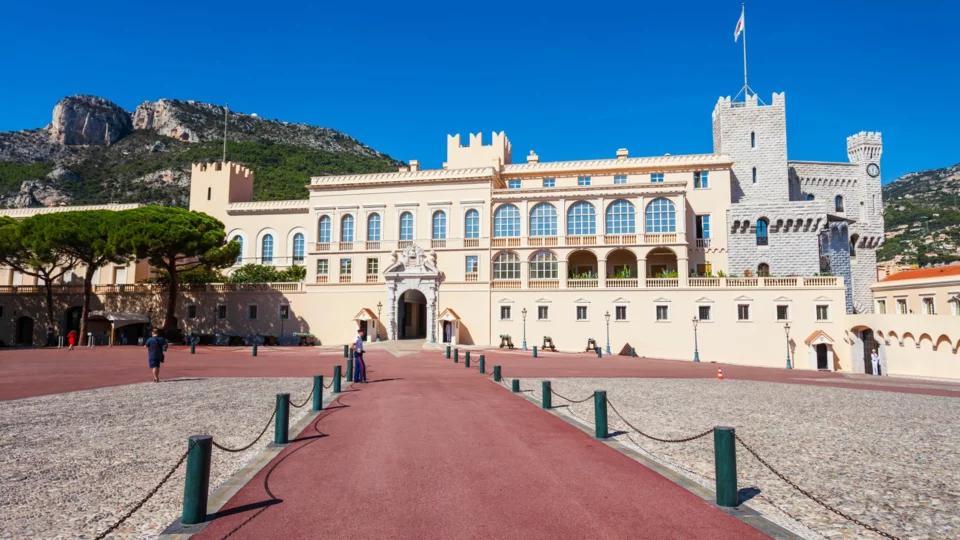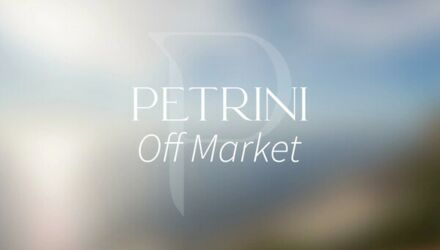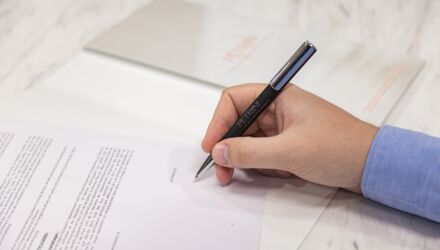

The Principality of Monaco attracts nationals from all over the world who want to reside there, in particular because of its stability and advantageous tax system. We have already discussed the conditions for obtaining Monegasque residency in our main article. We have already dealt with the issue of the Convention on the Elimination of Borders (hereinafter referred to the Government) on the grounds of the Convention on the Elimination of Borders (hereinafter referred to as the President of Monaco) and the Minister of Foreign Affairs. commonly known as a residence permit, by the Monegasque authorities. This residence permit, issued to foreigners over the age of 16, attests to their residency status and allows them to live and possibly work legally in the Principality.
Citizens of the EEA (European Union, Iceland, Norway, Liechtenstein) and Switzerland do not need a prior visa and follow a simplified procedure. On the other hand, nationals from outside Europe (third countries) must complete additional procedures. This article focuses on the specific procedure for non-EU candidates, in order to provide them with clear and up-to-date information. Here you will find the general requirements to be met, additional steps such as obtaining a settlement visa, as well as practical tips for completing your Monaco residency application.
For people of nationality outside the European Economic Area (and Switzerland), obtaining residency in Monaco requires following the same steps as those mentioned in our dedicated article, but with an additional imperative step beforehand: obtaining a settlement visa issued by France. Indeed, as Monaco is not a member of the EEA or the European Union, a neighbourhood agreement with France provides that foreigners from third countries must first be authorised via a "type D" long-stay visa specific to Monaco. Here are the main steps and particularities of the process for non-EU applicants:
Before any other procedure in the Principality, a non-EEA national must obtain a settlement visa for Monaco (type D long-stay visa). This visa is obtained from the French consular authorities of the applicant's country of residence. In concrete terms, you must submit an application for a long-stay visa for Monaco to the competent France consulate, providing a file similar to the one that will be required by Monaco (proof of accommodation, resources, extract from the criminal record, etc., see below). The settlement visa is generally valid for three months: it allows you to enter the Principality in order to obtain a resident card.
Special cases: If you have already been living in France for more than a year under a French residence permit, you do not need to apply for a traditional visa. Instead, you will need to request a transfer of your current residence via the Embassy of France in Monaco, immigration service. This transfer procedure involves coordination between the French and Monegasque authorities, as the Franco-Monegasque border does not have separate control thanks to bilateral free movement agreements. On the other hand, since January 1, 2021, citizens of the United Kingdom are also considered third-country nationals (non-EEA) following Brexit. They must therefore, like other non-European foreigners, obtain a settlement visa and no longer benefit from automatic free settlement in the Principality. There is also no derogation for family members of British nationals already resident in Monaco: a British spouse or relative of a Monegasque resident must also follow the visa and application procedure for a standard residence permit.
Finally, in rare cases, a foreigner who is already in Monaco (for example on a short-stay visa) and who has accommodation there may apply for special authorisation from the Monegasque Department of the Interior to carry out the visa procedure directly at the Embassy of France in Monaco. This exception (provided for in Article 5 of the Franco-Monegasque Neighbourhood Agreement) is subject to the assessment of the Monegasque authorities and does not exempt the visa requirement, but simply allows it to be obtained without leaving Monegasque territory. In all cases, a settlement visa is mandatory in order to be able to apply for a Monaco resident card.
Summary of the visa stage:
Apply for a long-stay visa type D for Monaco at the local French consulate, carefully preparing a file with the required supporting documents (accommodation, income, criminal record, etc.).
Wait for the approval of the visa by the French authorities in connection with Monaco – the consulate will consult the Monegasque government before issuing the visa.
Once you have obtained your visa (valid for 3 months), you can travel to the Principality and start the formalities for issuing a Monegasque residence permit.
With your settlement visa in your pocket, the next step is to compile and submit your application for a residence permit to the Residents' Section (administrative police division of the Monegasque Public Security). This file will include all the supporting documents mentioned in the General Conditions section above, namely:
Valid proof of identity : for non-EEAs, a valid passport (containing the settlement visa issued by France). If you already have a valid French residence permit, add a copy as well.
Proof of accommodation in Monaco : recent lease contract (and its last electricity bill) if you are a tenant, notarial deed of ownership if you have bought a property, or certificate of accommodation signed by your host accompanied by proof of the latter's accommodation, as explained above. These documents must establish that you have an effective domicile in the Principality, adapted to your family situation.
Proof of financial resources : Monegasque employment contract or certificate of employment if you are coming to work, or company documents if you are an entrepreneur/investor (extract from the French Kbis or Monegasque Trade Directory). If you do not have immediate professional income, a recent Monegasque bank certificate proving the availability of sufficient funds in your account will be essential. It is therefore strongly advised for non-EU nationals to open a bank account in Monaco as soon as possible and deposit the required funds into it (usually €500,000 minimum according to common banking practices, we have written an article on the minimum to live in Monaco that can help you understand the fees to be expected). For people who are being cared for by a third party, include the signed letter of support and proof of resources from the guarantor. The objective is to convince the authorities that you will be able to provide for your maintenance and housing costs in the long term.
The extract from the criminal record (or certificate of good conduct) of less than 3 months for each country where you have resided during the last 5 years. Remember to obtain these official documents before leaving your country, and have them translated if necessary, as they are mandatory. Without them, your application will not be admissible.
Civil status documents : your recent birth certificate, and if applicable your marriage certificate, as well as documents relating to your dependent children (copies of passports or identity cards for minors, proof of schooling if your children are attending school outside Monaco, etc.). These additional documents allow you to complete your family profile in the eyes of the administration.
Sworn statement : Monaco also requires a sworn statement, to be completed and signed, certifying the accuracy of the information provided and your commitment to comply with Monegasque laws. This specific form (available online or on request) must be attached to your application.
Don't forget to have all documents that are not in French, English or Italian, as mentioned above, translated by a sworn translator. Also make sure to make copies of each document, as you will have to present the originals during the interview, while handing in a file with the copies.
Once you have gathered your complete file, you must submit it to the Monaco Residents' Section . You have two options for depositing:
Online application: Monaco has set up an online service for the first application for a residence permit. You can fill out an online form and upload all the scanned receipts. If you are not comfortable with digital procedures, there is a Maison du Numérique in Monaco to assist you by appointment. Once the online application is submitted, your application will be reviewed. If deemed complete and admissible, you will receive an email notification inviting you to make an appointment for the next step: the individual interview.
Paper application (mail or physical deposit): If you prefer the traditional route, you can obtain the official application form ("first card application" form) from the Residents' Section or by downloading it, then send it by post with copies of the supporting documents. The postal address is: Residents' Section – 9 rue Suffren-Reymond, 98000 Monaco. You can also go in person to the Residents' Section to submit the complete file and, at that time, a maintenance appointment will be scheduled for you if everything is in order.
In all cases, a mandatory interview will take place with a Public Security officer. This interview is used to verify the originals of your documents, to confirm your motivation and the conditions of your installation, and in general to evaluate your application. The interview appointment is individual and takes place in person at the service of the residents.
Following the interview and examination of your file by the administrative police, a decision is taken. If your application is approved by the Monegasque authorities (after the usual checks and the formal agreement of the Prince's Government), you will be contacted again for a second appointment dedicated to the delivery of your residence card. The card is issued at the premises of the Residents' Section. This is when you will have to pay the card issuance fee (€80 for a first temporary card for one year, as mentioned above). The Monegasque residence permit includes your photo, your civil status information and the address of your accommodation in Monaco, as well as a chip containing your data (it can be used as a digital identity to access the Principality's online services, if you enable this feature).
As soon as you have your card in hand, congratulations, you are officially a resident of Monaco! You will then be able to register for the various services (electricity, telephone, Monegasque social security if applicable, etc.) and enjoy your new life in the Principality. Keep in mind that the first card is valid for one year. In the absence of any infringement of the conditions of residence, its renewal is generally a formality the following year (see below).
The overall time to obtain your resident card can vary depending on many factors (speed of obtaining the visa, time to gather documents, availability of administrative appointments, etc.). It is reasonable to allow between a few weeks and a few months from the start of the process until final approval. In some cases, the entire process can take 3-4 months, especially if your file requires extensive checks or if you have to wait for the settlement visa to be issued. Patience and anticipation are therefore required.
Key points to remember for a non-EU candidate:
Mandatory long-stay visa: Before thinking about moving to Monaco, obtain a settlement visa (type D) from a French consulate, without which you will not even be able to submit your residence application.
Address in Monaco: Make sure you have accommodation in the Principality (rented, bought or accommodated by a relative) and gather the corresponding proof (registered lease, deed of ownership, certificate of accommodation).
Financial resources: Prepare proof of your income or available funds. If you don't have a salary in Monaco, open a Monegasque bank account and fund it enough (typically ≥ €500,000 ) to obtain the bank certificate proving your resources.
Administrative documents and criminal record: Gather a valid passport, your birth certificate, and recent criminal record certificates from your previous countries of residence. Anticipate translations if necessary and complete the requested sworn statement.
Deposit and maintenance: Submit your complete application either online or directly to the Residents' Section, then prepare for the mandatory interview. This is the final step before your card is approved.
Follow-up of the file: Stay reachable (provide a valid phone number and email) and responsive to make appointments. Once your card has been issued, respect the conditions of stay and think about future renewals.
Becoming a Monegasque resident is not the end of the administrative procedures. Here are some obligations and formalities to be aware of after obtaining your residence permit:
Renewal of the residence permit : The temporary one-year permit must be renewed when it expires if you wish to continue to reside in the Principality. It is imperative to start the renewal procedure before the expiry date (the Monegasque government also offers an online service for this). The documents to be provided for a renewal are similar to the first application (updated proof of address, financial means, etc.), in order to check that you still meet the conditions. The renewal fee for the temporary card is reduced (in 2023, €40 for a one-year extension). After 3 years of continuous residence, you can obtain a 3-year ordinary card (€100 fee, renewal €50) and after 10 years a 10-year privileged card (€160, renewal €80), but each step requires proof of actual residence and maintenance of the required criteria.
Duplicate in case of loss or theft : If your residence permit is lost, stolen or damaged, you must report the incident without delay and request a duplicate (a replacement) from the Residents' Section. You will have to provide a lost/stolen report (made to the police) and pay any fees for the new card. Do not stay without a valid card, as it is your only document proving your right to reside in Monaco.
Changes in situation : Any change in your civil status, nationality, address in Monaco or professional activity must be reported to the Residents Department to update your residence permit. For example, in the event of marriage, divorce, moving to another Monegasque apartment, or a change of employer/professional status, the information must be on your residence permit. Supporting documents (new civil status certificate, new lease, employment contract, etc.) will be requested to make the changes. This ensures that your card remains up-to-date and in line with your actual situation.
Monegasque residence certificate : In certain administrative situations, you may be asked for a residence certificate. This is an official document, issued by the Public Security, which attests to your effective residence in Monaco on a given date. For example, it may be required for banking procedures, tax procedures outside Monaco, or for school registration, etc. You can apply for this from the Residents' Section. The residence certificate is valid for 6 months and a stamp duty of around €5 is usually levied when it is issued. Note that for international tax purposes, a specific certificate of tax residence can be obtained via a separate procedure (to be requested by email to resident@gouv.mc, according to the instructions of the Administration).
By complying with these post-obtaining formalities, you will ensure a long-term and serene installation in the Principality.
Monaco appeals to many expatriates thanks, among other things, to its particularly advantageous tax regime. Indeed, Monegasque residents benefit from a total exemption from income tax, and there is no wealth tax, property tax or housing tax in the Principality. Only French citizens are subject to a special agreement subjecting them to income tax, in certain cases, under the Franco-Monegasque tax treaty of 1963. This favourable tax system, combined with Monaco's exceptional security, climate and quality of life, explains the enthusiasm for moving to the Principality. (To find out more about this, do not hesitate to consult our dedicated article: Taxation in Monaco: the advantages of taxation for expatriates and Monegasques.)
If you are thinking of taking the plunge and moving to Monaco, whether by renting or buying a property, it is strongly recommended that you be accompanied by professionals who are perfectly familiar with the local procedures. Our Petrini Exclusive Real Estate Monaco agency is at your disposal to help you at every stage of your installation project, especially for non-EU nationals. With our extensive experience working with international clients, we can advise you in the search for the ideal accommodation that meets Monegasque administrative requirements, put you in touch with our partners (banks, legal advice, relocation) and assist you in the process, whether it is the constitution of the residence file or the entry formalities.Ea. Contact us without hesitation: we will be delighted to put our expertise and network at your service to make your relocation to Monaco a success. By choosing quality professional support, you maximize your chances of seeing your Monegasque dream come true in the best conditions and as soon as possible.

We present a superb four-room apartment located in the highly sought-after Eden Star residence in Fontvieille, offering beautiful volumes, large terraces and elegant services in the heart of an exclusive environment of Monaco. Contact us for more information.
Price on request
Dive into luxury and serenity with this large two-bedroom apartment located in the heart of Fontvieille, offering breathtaking views of the sea, rose garden, and the Rock. Facing southeast, it is drenched in dazzling natural light that highlights its elegant design and premium finishes. This haven of peace, nestled in the prestigious Seaside Plaza, promises a life of refinement and exclusivity. Enjoy an idyllic living environment where luxury, comfort, and natural beauty come together to create an unparalleled living experience.
10 250 000 €
Discover this sumptuous 4-room apartment completely renovated, located in the Riviera Palace. Offering a breathtaking view of the Casino de Monte-Carlo and the sea, it combines contemporary elegance, top-of-the-range services and an exceptional location in the heart of Monaco.
14 900 000 €



Contact our real estate agency in Monaco
In which district would you like to search for your future apartment?